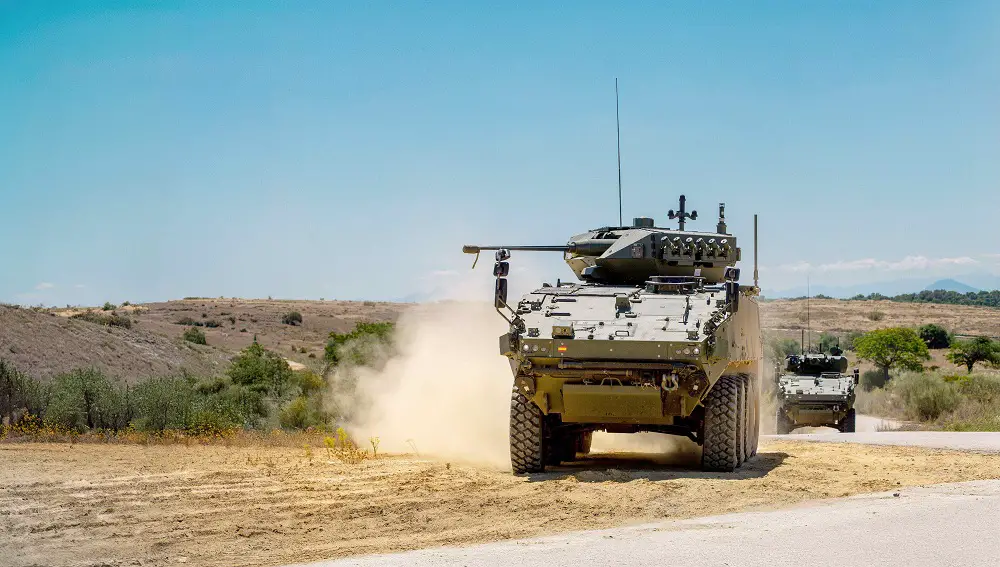Spanish information technology and defense systems company Indra is showcasing some of the technologies that the world’s most advanced armies are adopting to intervene in increasingly complex conflicts and counter emerging threats at the 2024 Army Enterprise Forum to be held from October 2 to 3 in Toledo. One of the main pillars of this digitalization is to provide armored vehicles with greater intelligence. Indra will take part in the operational demo that will be conducted within the framework of the Army Enterprise Forum at the Los Alijares test range to show off the advantages of its Maestre mission system, which is in charge of managing the sensors and systems of the 8×8 Dragon and displaying information to the crew.
The support of the Ministry of Defence in the development of this technology has brought Indra into the industrial core of large European R&D programs such as FAMOUS I and II and MARTE, which define what the ground platforms of the future will be like and how they will facilitate multi-domain operations. The company is also showcasing its new Maestre mission system emulator, which synthetically reproduces vehicle behavior and the operating environment to evolve the system. It will also unveil its 360º vision system (L-SAS), which incorporates artificial intelligence for real-time analysis of the images collected by the driver assistance cameras (visible, night and infrared range), detect threats, and indicate potential protective measures and lines of action.
Among the biggest threats facing any armored vehicle today are drones and new types of munitions. The company has developed small-sized advanced radar to be installed on vehicles which is capable of detecting, identifying, tracking and determining the moment of projectile impact in order to activate appropriate countermeasures. It is an advanced solid-state, electronically scanned, S-band 3D radar (AESA), which offers increased scanning speed by facilitating beam control without having to move the antenna.
The company will also unveil the latest enhancements to its air defence command and control system (COAAAS Plus), which is outfitted for multiple sensors and weapon systems and incorporates NATO-standard interoperability protocols. It will also present its family of AESA MTR radars, which are part of the company’s air defence command and control system (COAAAS Plus) and the Spanish Army’s High Mobility Rocket Launching System (SILAM). Control of the electromagnetic spectrum is also key to operating in any scenario. Indra brings to this forum its Landef command and control system, designed to be deployed on the ground and manage multiple sensors and jamming emission systems to blind the adversary’s radars and block their communications.
In the field of training, Indra and the Spanish Army have led the world in the implementation of interoperable simulation systems: they have interconnected the helicopters of the Spanish Army Aviation Academy (ACAVIET), allowing pilots from different bases and aircraft models to train together. Finally, the company has taken on the role of a driving force and is promoting the development in Spain of the discipline of operational analysis. This discipline, which combines military, technological and scientific knowledge, makes it possible to reproduce combat situations hundreds of times in the laboratory in order to optimize the design of systems and increase their effectiveness, providing the Ministry of Defense with scientific evidence and data to make the best decisions.















